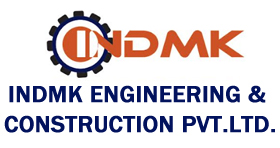The role and responsibilities of an EPC (Engineering, Procurement, and Construction) contractor are extensive and encompass various aspects of project management, from the initial planning and design stages to the construction and commissioning phases. Here is a more detailed breakdown of the specific roles and responsibilities of an EPC contractor:
Project Planning and Feasibility:
• Conduct feasibility studies and assessments to determine project viability.
• Define project objectives, scope, and requirements.
• Develop project execution plans and strategies.
• Establish a budget and schedule for the project.
Engineering:
• Perform detailed engineering and design work.
• Develop architectural, structural, mechanical, electrical, and other technical plans.
• Ensure compliance with applicable codes and standards.
• Optimize design for cost-effectiveness and efficiency.
Procurement:
• Identify, evaluate, and select suppliers and vendors for materials and equipment.
• Negotiate contracts and procurement agreements.
• Manage the procurement process, including purchase orders, expediting, and logistics.
• Ensure timely delivery of materials and equipment to the construction site.
Engineering:
• Perform detailed engineering and design work.
• Develop architectural, structural, mechanical, electrical, and other technical plans.
• Ensure compliance with applicable codes and standards.
• Optimize design for cost-effectiveness and efficiency.
Construction Management:
• Manage all construction activities on-site.
• Mobilize and supervise construction personnel and subcontractors.
• Ensure adherence to safety regulations and quality standards.
• Monitor progress and adjust the construction schedule as needed.
• Resolve construction-related issues and conflicts.
Quality Control:
• Implement quality control procedures and standards.
• Conduct inspections and quality audits to verify compliance.
• Rectify and address any deviations from specifications.
• Maintain accurate records of quality assurance activities.
Safety Management:
• Develop and enforce safety plans and protocols.
• Promote a culture of safety among project personnel.
• Monitor and report safety performance.
• Investigate and address safety incidents and concerns.
Cost Management:
• Monitor project costs and expenditures..
• Control and manage the project budget..
• Identify cost-saving opportunities and efficiencies.
• Provide cost forecasting and reporting to the client.
Schedule Management:
• Develop and maintain project schedules.
• Ensure milestones and deadlines are met.
• Adjust schedules as needed to address delays or changes.
• Coordinate activities to optimize project timelines.
Commissioning and Handover:
• Test and commission all systems and equipment.
• Ensure proper startup and functioning of the facility.
• Provide training and documentation to the client's operations and maintenance teams.
• Prepare for the formal handover of the completed project.
Documentation and Reporting:
• Maintain comprehensive project records and documentation.
• Prepare regular progress reports for the client.
• Document any changes, issues, or deviations from the plan.
• Document any changes, issues, or deviations from the plan.
Risk Management:
• Risk Management:
• Develop risk mitigation strategies.
• Monitor and manage risks throughout the project.
Client Communication:
• Maintain open and transparent communication with the client.
• Address client inquiries, concerns, and requests promptly.
• Keep the client informed about project status and progress.
• In summary, the role of an EPC contractor is to oversee all aspects of a project's lifecycle, from initial concept and planning through to construction, commissioning, and handover. They are responsible for delivering the project on time, within budget, and to the specified quality and safety standards while managing risks and ensuring effective communication with the client.

